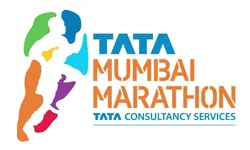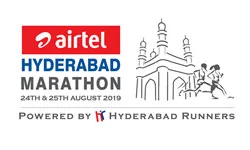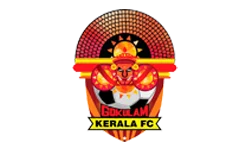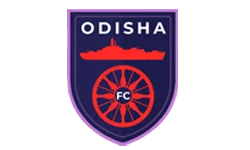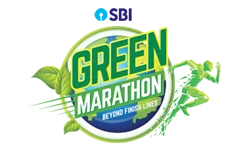We have all been there. After a night of heavy drinking, we wake up with a throbbing headache, nausea, and an overall feeling of misery. Hangovers are the body's way of telling us that we've overdone it and need to take better care of ourselves. But did you know that what you eat when hungover can make matters worse?
In this blog, we will not only discuss the common symptoms and myths associated with hangovers but also delve into the foods that you should avoid at all costs. From greasy burgers to high-protein meals, we'll break down why these foods are detrimental to your health when you're nursing a hangover.
Defining a Hangover
A hangover is the result of consuming excessive alcohol, leading to physical and mental symptoms. These can include headache, nausea, fatigue, dehydration, and sensitivity to light and sound. The intensity and duration of hangovers vary depending on individual factors and alcohol consumed. Hangover symptoms are primarily caused by toxic byproducts of alcohol metabolism. Understanding the definition of a hangover helps individuals make informed choices about alcohol consumption.
Foods to Avoid When Hangover

Why Greasy Food is a Bad Idea
Indulging in greasy foods like burgers, bacon, and cheese sandwiches may seem tempting, but it is the worst thing you can do for your body. Alcohol is broken down via the same metabolic pathway as fat, so while your body is breaking down the alcohol you consumed last night, it will have to put that greasy food to the side.
So, although it may be tempting to indulge in a hangover sandwich consisting of meat and melty cheese, your body will store the fats for later since it is unable to simultaneously digest both the greasy food and alcohol. As a result, you will experience prolonged discomfort.
The Dangers of High-Protein Food During a Hangover
High-protein foods can exacerbate hangover symptoms due to their difficult digestibility. Consuming these foods during a hangover may prolong the recovery process and worsen feelings of discomfort. While protein is an essential nutrient, opt for lighter options when recovering from a night of heavy drinking. Stick to easily digestible foods such as toast, crackers, or chicken noodle soup to aid in rehydration and alleviate queasy stomachs.
More Alcohol as a Cure
Contrary to popular belief, consuming more alcohol as a cure for a hangover is a myth and can actually worsen symptoms. Hangovers are caused by excessive alcohol consumption and result in a range of unpleasant symptoms. While it may be tempting to reach for another drink to alleviate the discomfort, doing so will only prolong the hangover and potentially lead to further dehydration and other adverse effects.
Coffee as a Hangover Cure
Coffee, often considered a go-to remedy for hangovers, may actually worsen dehydration and should be avoided. While caffeine might provide a temporary boost in energy, it can further dehydrate the body, exacerbating hangover symptoms. As a registered dietitian would suggest, opt for rehydration with sports drinks, water, or electrolyte-rich fluids instead. Coffee may not be the best option when it comes to combating hangovers.
Avoid the Acid
When you are hungover your body is already dehydrated and your stomach is feeling a bit sensitive. Citrus fruits, like oranges and grapefruits, are acidic in nature and can irritate your already delicate stomach lining. Not to mention, they can also increase acid reflux and heartburn symptoms, which are definitely not what you need after a night of indulgence. So, while it may be tempting to reach for that glass of orange juice to replenish your vitamin C levels, it's probably best to stick with water or electrolyte-rich drinks to rehydrate and soothe your body instead. Hang in there!
Do Not Add the Spice
Consuming spicy foods after a hangover can exacerbate the symptoms and prolong the recovery process. When the body is already in a weakened state due to alcohol consumption, spicy foods can further irritate the digestive system and lead to discomfort, nausea, and even vomiting. Spicy foods contain compounds such as capsaicin that can increase stomach acid production and cause inflammation in the gastrointestinal tract.
This can worsen symptoms such as heartburn, indigestion, and abdominal pain. Furthermore, spicy foods can also contribute to dehydration, which is already a common side effect of excessive alcohol consumption. Therefore, it is advisable to opt for mild and easily digestible foods when recovering from a hangover in order to promote faster healing and alleviate discomfort.
Does the Type of Alcohol Influence the Severity of Hangovers?
The severity of hangovers can be influenced by the type of alcohol consumed. Darker alcoholic beverages, like red wine or whiskey, may lead to more intense hangover symptoms due to higher levels of congeners. On the other hand, clear spirits such as vodka or gin are generally associated with milder hangovers. Regardless of the type of alcohol, responsible drinking is always important.
Conclusion
To avoid the dreaded hangover, it's important to make wise choices in both your alcoholic beverages and your food consumption. While myths may suggest that more alcohol or a strong cup of coffee can cure a hangover, these are actually counterproductive. Greasy, high-protein foods should also be avoided, as they can further irritate your already sensitive stomach.
Instead, opt for healthy alternatives, such as fruits and natural juices, which can provide essential vitamins and hydration. It's also crucial to practice responsible drinking habits and maintain a balanced diet to prevent severe hangovers. Remember, the type of alcohol you consume can also influence the severity of your hangover. So next time, choose wisely and prioritize your well-being.


